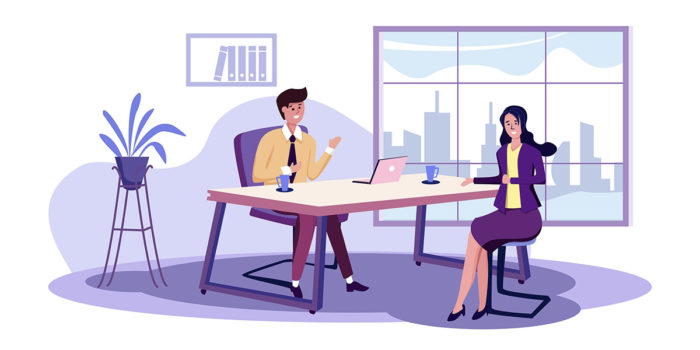How should you prepare before an interview? You might say, “list all possible questions and prepare the answers.” It might work. But can you predict all the interview questions?
I have seen people write down questions and answers word for word, then recite them. It looks funny to me. First of all, repeating those recited sentences makes you look very unnatural in the interview. Secondly, what if you were asked a question that you did not prepare for? Would that be terrifying for you?
That “oh my gosh, I didn’t prepare for this” reaction would put your name straight onto the rejection list.
Rather than spending time on those unpredictable questions, why not focus on something that can certainly make you stand out over many other candidates? The following 6 tips for interview preparation can help you achieve that.
-
Learn About the Company
This is what you should have done before applying for the position, at least in part. When researching the company, gather information around these questions:
- What does the company do (i.e., industry, business)?
- What are the company’s main products/services?
- Are the business and this position attractive to you? Or, how do you think working in this role at this company can help with your career goal?
- Are the position’s responsibilities in line with the company’s business goal? Or, how can your role contribute to the company’s business goal?
Those are also the basic reasons you applied for that position, and they may or may not be some of your interview questions. So, again, no need to write them down and recite them. Just give them some thought when doing your research.
-
Search Online for the Interviewer(s)
If you know the interviewer’s name, then take a look at the person’s LinkedIn profile so you can learn more about their professional background, as well as current title and responsibilities. If you want to know their personality too, then also search on Facebook.
Learning about your interviewer can help reduce nervousness. You could create a conversation strategy based on your interviewer’s personality.
-
Respond to Emails on Time
If you received an interview invitation, respond as quickly as you can to confirm your time. If the recruiter only provided one slot, which is not convenient to you, it is okay to reply with your options. But do respond on time.
-
Reply to All
This is a prevalent mistake made by interview candidates and also happens during daily business communications. You might be editing your response on the phone, but do pay a little attention to the CC section. If somebody was CC’ed in the email, the sender wants to keep that person in the loop. So, reply to all.
When it comes to an interview email, the CC’ed person could be the receptionist or the hiring manager. If it’s the latter one, it would be your first time communicating with your interviewer (although indirectly), as well as your first chance to show your best self.
-
Have All Your Files Ready
In most situations, interviewers will print out your submitted resume before the interview. But in case they didn’t have the time to do that, bring copies of all necessary files. Of course, bring the resume, perhaps also a certificate, some work samples or a portfolio, transcripts, etc. Being well-prepared can also make you feel more confident because you have something to talk about.
-
Dress for Success
No matter what kind of interview you attend, even with a recruiting agency, always dress formally to show your respect and attitude.
Trust me, I have seen people wearing hoodies for face-to-face interviews and men wearing cotton vests for Skype interviews. It indicates that you are not serious about this opportunity and more or less implies your work style.
“The devil is in the details.” It is also applicable here. Paying attention to these details would be much more helpful than pre-writing/reciting your interview answers. An interview is not a test; it is a conversation. Apply these 6 tips to your daily work, and you will become a great communicator. Use them to guide your interview preparation, and you’ll set yourself apart from the crowd.
What about preparing for video interviews? Here’s an article about video interview preparation.




